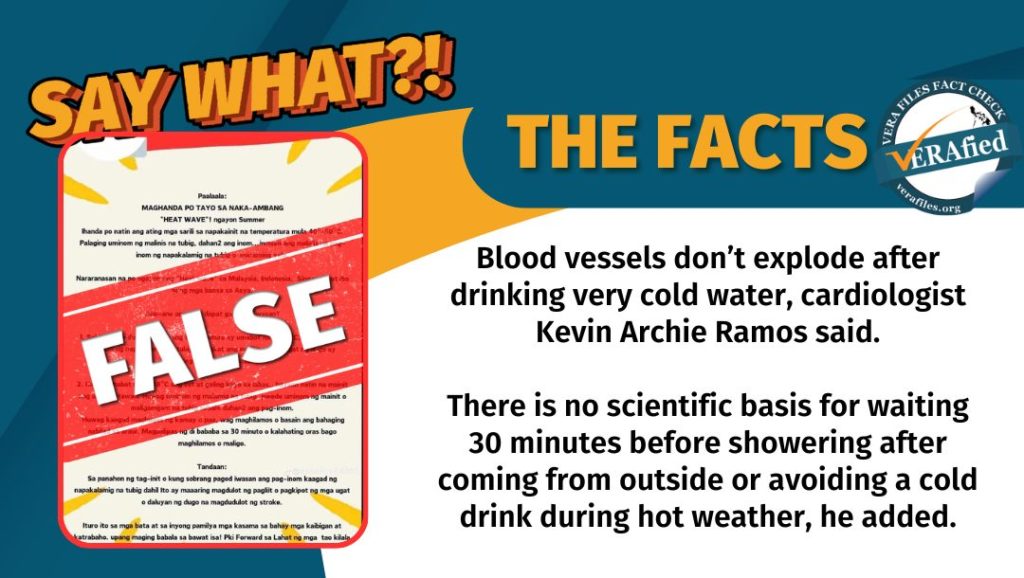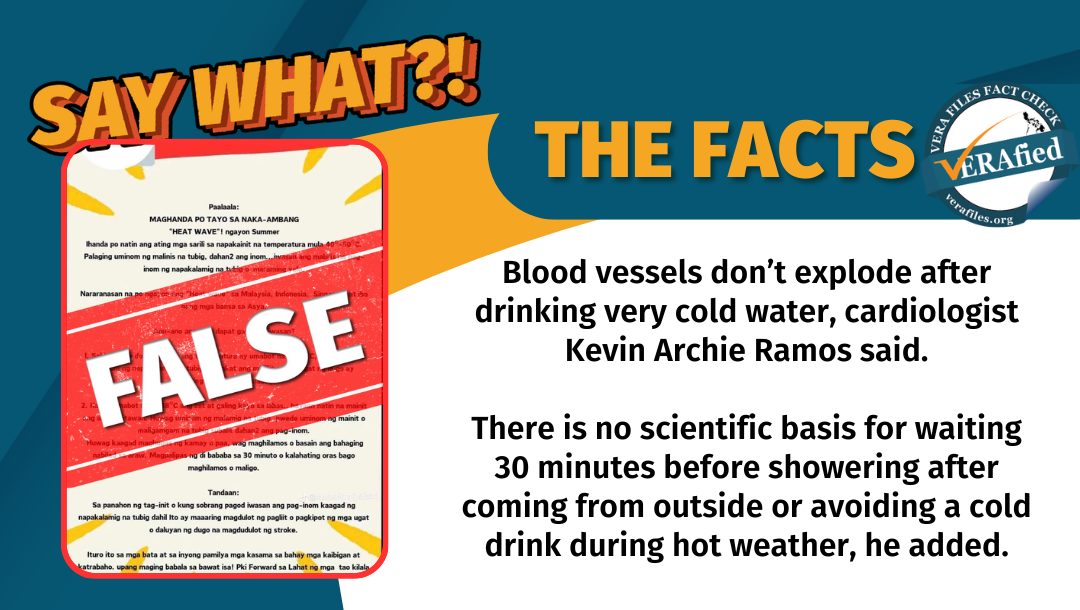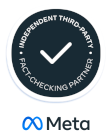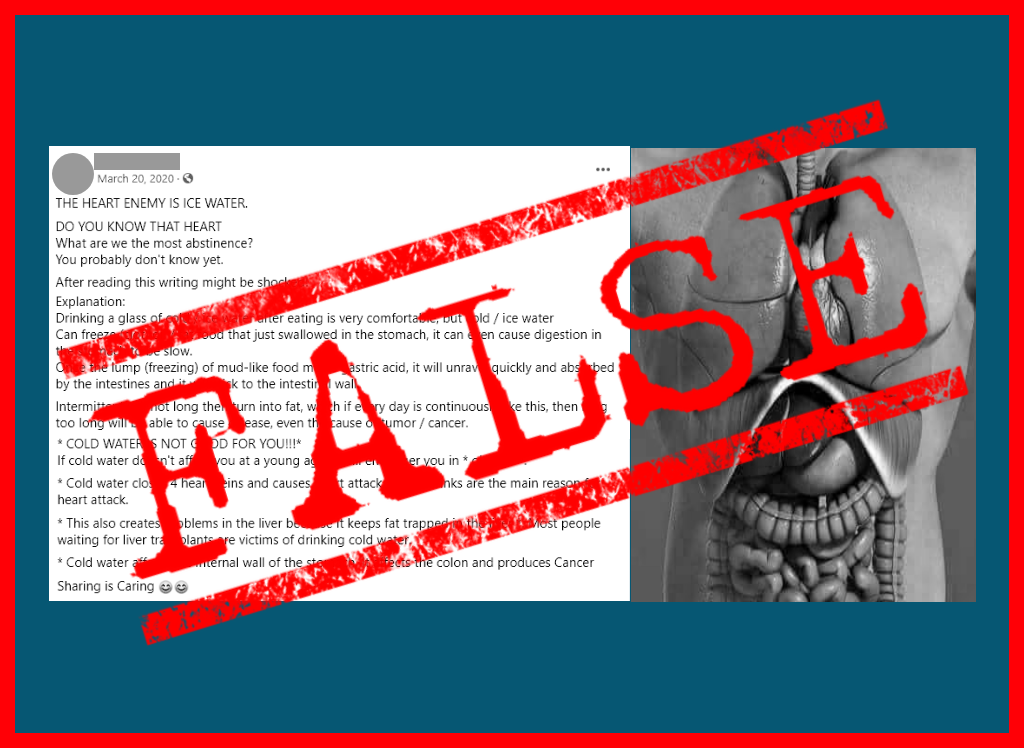At least seven Facebook (FB) pages and users reshared a series of incorrect tips on how to deal with the ongoing heat wave.
The posts falsely claimed that a person’s blood vessels could burst or explode after drinking very cold water when the outside temperature is 40° Celsius.
“It’s not true that one’s blood vessels might explode after drinking very cold water,” Kevin Archie Ramos, a cardiologist and vascular medicine specialist at the Philippine Heart Center, told VERA Files Fact Check via email.
“Blood vessels dilate or open up during increases in temperature as blood flow is redirected to the skin to dissipate heat. During exposure to the cold, blood vessels constrict and redirect blood to deep tissues to maintain core body temperature,” Ramos explained.

The posts also advised people to wait 30 minutes before taking a shower after coming from outside, and to only drink warm or lukewarm water to hydrate in the hot weather. There are no studies or scientific evidence behind these claims, Ramos said.
Former health secretary Ma. Rosario Vergeire also debunked these claims in 2023.
“What we actually do is cooling down the body and the most effective way is giving a shower so long as the patient is conscious,” she said.
“We allow the patient to get hydrated… If [the patient] is conscious, we can let him drink very cold water but slowly… But if he’s unconscious, don’t force him to drink because he might choke and the water might get into his lungs,” Vergeire said in Filipino.
Apart from VERA Files, Philstar.com, and India’s The Quint previously debunked the claim, which appeared as early as 2019.
The seven FB posts, which appeared two days after state weather bureau PAGASA warned of dangerous heat indexes in 15 areas around the country, garnered a total of 5,279 interactions, 747 comments, and 47,142 shares.
Have you seen any dubious claims, photos, memes, or online posts that you want us to verify? Fill out this reader request form or send it to VERA, the truth bot on Viber.
(Editor’s Note: VERA Files has partnered with Facebook to fight the spread of disinformation. Find out more about this partnership and our methodology.)



